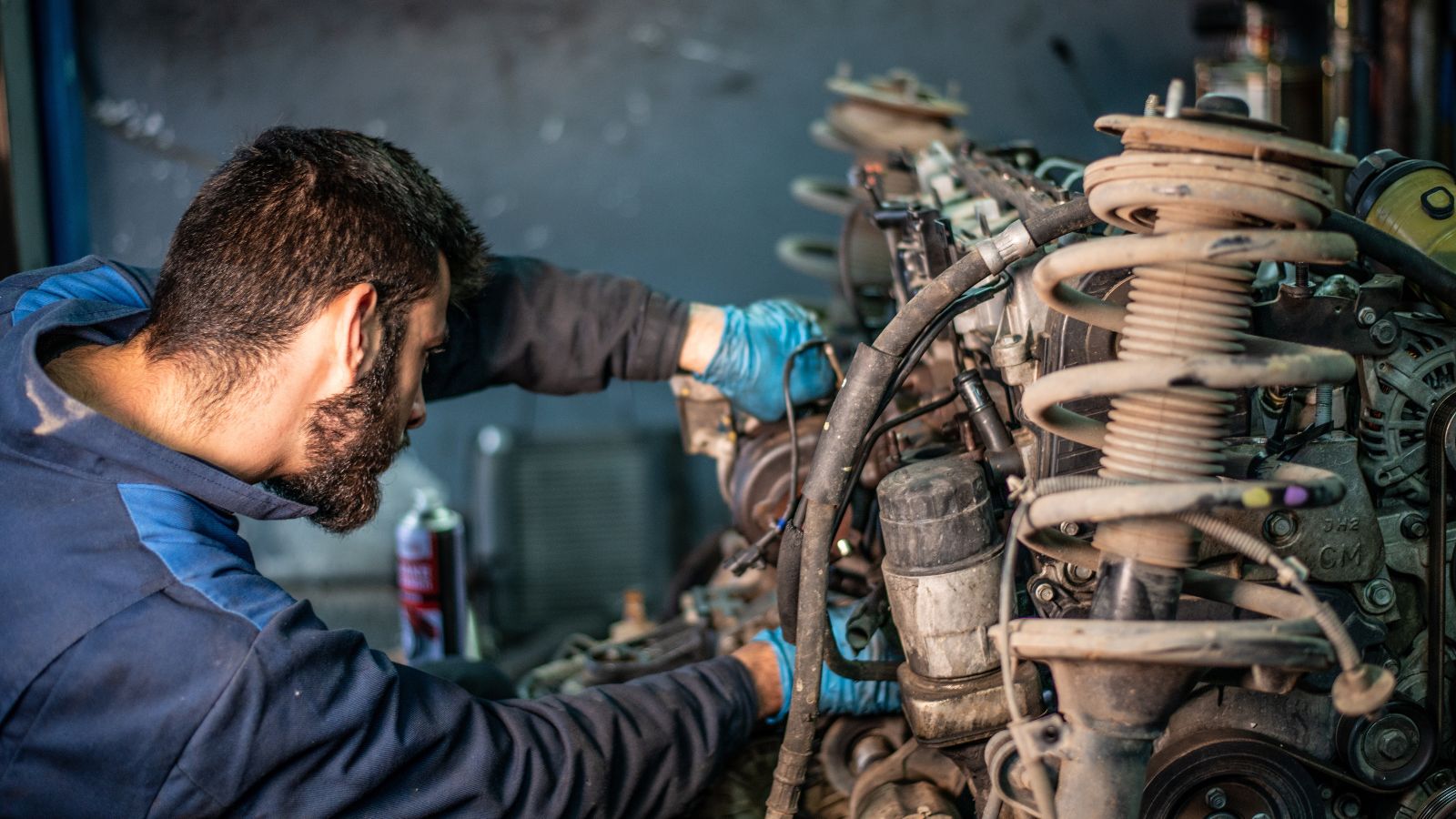The sensors of our vehicles deserve to be praised for the role they play to ensure a safe journey for us. Injector Control Pressure sensors or ICP sensors are one such. And as a diesel engine vehicle owner, you should know how to tell if you have a bad ICP sensor.
Your engine is bound to perform poorly if there’s a bad ICP sensor. Issues like starting the engine and deal with extreme harsh idling will show up. The Check Engine Light will stay on if the computer detects a problem with the ICP, and you’d have to check out trouble codes for further diagnosis.
However, since this crucial sensor sits close to the high-pressure oil pump, no matter how simple the fail symptoms seem– diagnosing and taking the route to fix them can be an exhausting one.
But first, let’s learn why these sensors are so significant.
Why Do Diesel Vehicles Need An ICP Sensor
The whole Fuel Injection system plays the most crucial role in ensuring the smooth functioning of a diesel engine.
Followingly, the injectors, cylinders, fuel pumps, and the engine itself depend on proper fuel flow which is maintained by accurate pressure and temperature in a diesel engine.
This is where the ICP sensor or the Injector Control Pressure sensor monitors the whole fuel system, specifically for Ford automobiles.
The ICP sensor detects the amount of pressure there’s on the fuel rails and sends a 5V analogue voltage signal to the engine computer or ECM (Engine Control Module).
The data received from the sensor by the computer engine will be used to regulate the amount of fuel consumed and disbursed each time your vehicle starts or is running.
If your vehicle’s engine fails to get the information from the sensor, it wouldn’t have any idea regarding the oil pressure inside the fuel rail and will lose the ability to regulate the actuators and injectors.
Eventually, for a bad ICP sensor, your engine would run roughly, and the worst-case scenario would be your engine not starting at all!
How To Tell If You Have A Bad ICP Sensor? What Are The Probable Signs?
The injector control pressure sensors are prone to get worn out and eventually fail by being used for a long time – like all other engine components and sensors.
A bad ICP sensor can cause a bunch of mechanical problems. If your ICP sensor is faulty, absolute poor engine performance is what you’d have to deal with.
Here are the common symptoms that give away that your ICP sensor might not work well-
- Engine having issues with Starting
If you notice your engine has started to run extremely rough, there’s a good chance that it’s due to a bad ICP sensor. This problem is generally the first symptom of a faulty ICP sensor.
Diesel engines rely on a proper fuel mixture for ignition since they do not go by a spark-ignition method.
If the ICP sensor is faulty, the engine won’t receive any signal from the fuel injectors; hence your vehicle wouldn’t be able to start normally.
You’d have to crank your engine way more than you usually do or turn your keys several times to start if this happens.
- Check Engine Light remains On
The Check Engine Light getting on suddenly or remaining on for a while is another ICP sensor fail symptom you should look out for.
It helps to denote there’s a problem somewhere out there that should be checked.
If the engine computer fails to get any signal from the ICP sensor or detects any other issue in the connected fuel system, it’ll direct the Check Engine Light to stay on.
- Dying-out Engine and Harsh Idling
Without a proper signal from the sensor, there would be a faulty distribution of fuel, causing a loss in acceleration and power.
If such an erratic fuel supply goes on, your vehicle will keep stalling; that is, your engine will stop running abruptly and suddenly.
Even when the engine is not running, it’d idle very harshly and would stutter.
A bad ICP will lead to a loss of fuel economy as well.
All the fault symptoms mentioned above can be easily caused by a bad ICP sensor, but the issues aren’t limited to a failing sensor and can be caused by other components.
Hence diagnosing the symptoms is an essential step because none of us wants to replace a fully functioning ICP sensor just based on assumptions.
So let’s get into the investigation!
Inspecting The Failure Signs To Verify An ICP Sensor Failure
Wiring issues and the sensor getting deteriorated play the biggest roles in the case of ICP Sensor failures.
The following methods would help us to verify if our ICP sensor is faulty for real or not-
- Diagnosing Connected wires
There is a unique method you could adopt to diagnose if the ICP is bad, and that’s to run your engine by unplugging the wiring harness.
Note that you won’t be driving this way but just would let the engine run. If the engine runs all well although the sensor is unplugged, that verifies that the ICP sensor is faulty and it has not been working.
Moreover, check out the cables too since excessive heat can cause damage to them and result in short circuits.
- Presence of Oil
The wiring getting ruined because of oil contamination is a common phenomenon.
Unplug the wire harness of the sensor and check if it has oil inside and around. The presence of oil directly translates to a bad ICP sensor.
The oil can cause the harness to bulge by flowing through the ICP, and if you notice this, it’s high time you replace your ICP sensor.
- Checking for Trouble Codes
As a vehicle owner, you should practice checking for trouble codes for any issue you come across.
In case of a bad ICP sensor, you can run the check for these codes as soon as you notice the typical sensor fail signs.
You’d need an OBD-II trouble code scanner to carry out this task, and if the code P2285 comes on, it verifies a bad ICP sensor.
Again, a range of codes similar to this, like- P2283, P2284, P2286, and P2287 refer to the sensor or any issues with the connected electrical circuit board.
So it’s better to stay aware of it all.
Now, if you’re done diagnosing and have succeeded in verifying your bad ICP sensor, what’s the best step you could take to resolve the issue?
Let’s explore more!
How To Fix A Bad ICP Sensor; Repair or Replace?
There’s a whole debate among users if a sensor should be repaired or just replaced on the whole.
The proper solution to this depends on how your sensor has been damaged and what the issues are connected with.
You cannot go far with a sensor with a damaged body. However, if it’s dirt contamination or a loose connection, you are free to solve it by troubleshooting.
But, you must always keep in mind that the ICP sensor is directly connected to a complex set of components and the diesel fuel system itself is sensitive.
Hence, big repairs should be undertaken by professional mechanics; otherwise, you run the risk of damaging other parts of your vehicle, which would cost you even more.
The following is a brief description of the ways you could resolve your bad ICP sensor issues-
- Replacing
As mentioned above, ICP Sensors should be replaced, and experts should install new ones. But as a diesel enthusiast, there’s no harm in knowing about the common steps.
Firstly, the negative battery cables and the pigtail connector need to be disconnected; then by using a wrench sensor can be loosened and removed.
Secondly, before installing the new sensor, some clean oil is recommended to be spread on the sensor’s o-ring.
And lastly, to ensure the installment is being properly, dielectric grease is applied to the sensor terminals.
An ICP sensor costs around $150-$250, and if you’re getting it replaced by a mechanic, the labor cost would usually be around another extra $200-$250. That is, on average, you might have to spend about $500 to install a new sensor.
Now that you’ve got a new ICP sensor and are aware of what makes the sensor a bad one, you might wonder how to be sure that the sensor is working properly.
Let’s check out how you could run a test on your ICP sensor
- Testing
A scan tool can facilitate you to test the injection control pressure magnitudes of your sensor, and you can then certify if everything is up to mark.
Here are some of the ideal pressure values of an ICP sensor-
- Pressure value at Starting
To start the engine, there must be a minimum pressure value of 500psi.
- Pressure value at Idle
On injectors, the value should be 475-490psi.
- Pressure value during Acceleration
During acceleration, the pressure value should be in a range of 2450-2700psi.
These are the most prominent values you should test out and ensure that your sensor is working with all its might.
Ways You Could Maintain Your ICP Sensor In Good Condition
The sensors of your vehicle are manufactured in a way that should last a long life. But unforeseen events can cause issues, but we can minimize the drastic effects if we practice some preventive measures like-
- Checking the Sensor Version
A good example here would be the Ford vehicles and their version. The Ford 7.3L engine version comes with it’s another 7.3L labeled body parts and sensors.
That is, if you own this truck, make sure you’re using the 7.3L ICP sensor even when reinstalling and not any other ones for better safety protocol.
Avoiding the two-piece sensors and the non-OEM ones are also recommended.
- Check the Terminals
Older versions of the ICP sensor use a goldish terminal, while the newer ones have a silvering one. Although they are interchangeable, it’s better to use the gold-plated terminal sensors while replacing the goldish terminal connections and maintain the same for the silver ones.
- Use a Heat Shield
The connector of the sensor is exposed to extreme heat. Hence it’s suggested to use a protected heat shield to prevent cable damage and wiring issues.
FAQs
- Can the ICP sensor be cleaned?
Cleaning the sensor isn’t recommended since the oil contamination issue goes on inwardly.
But if you want to clean the outer cables, make sure you use a soft cloth to rub but don’t overdo it.
- What does OEM mean?
OEM stands for Original Equipment Manufacturer. An OEM product ensures that it’s produced by the same manufacturer using the same materials and methods.
- Will a faulty ICP sensor hamper gas mileage?
A bad ICP would not cause any harm to the gas mileage. But your engine can shut off all of a sudden, which might influence your gas consumption depending on how many times it requires you to start the engine.
Conclusion
There’s a good reason these ICP sensors are referred to as the heart of the fuel system, the blood; the fuel flow is just dysfunctional without it.
Hopefully, our discussion in this article would help you in your quest of – how to tell if you have a bad ICP sensor or not.
Make sure to check out for wiring and oil leaking issues and consult with professionals as soon as you notice sensor issues. Happy driving!

Thomas is a retired motor mechanic, father, and grandfather. He writes from his 20+ years in the automotive industry to help you find and solve anything related to car repairs, maintenance, and care.
